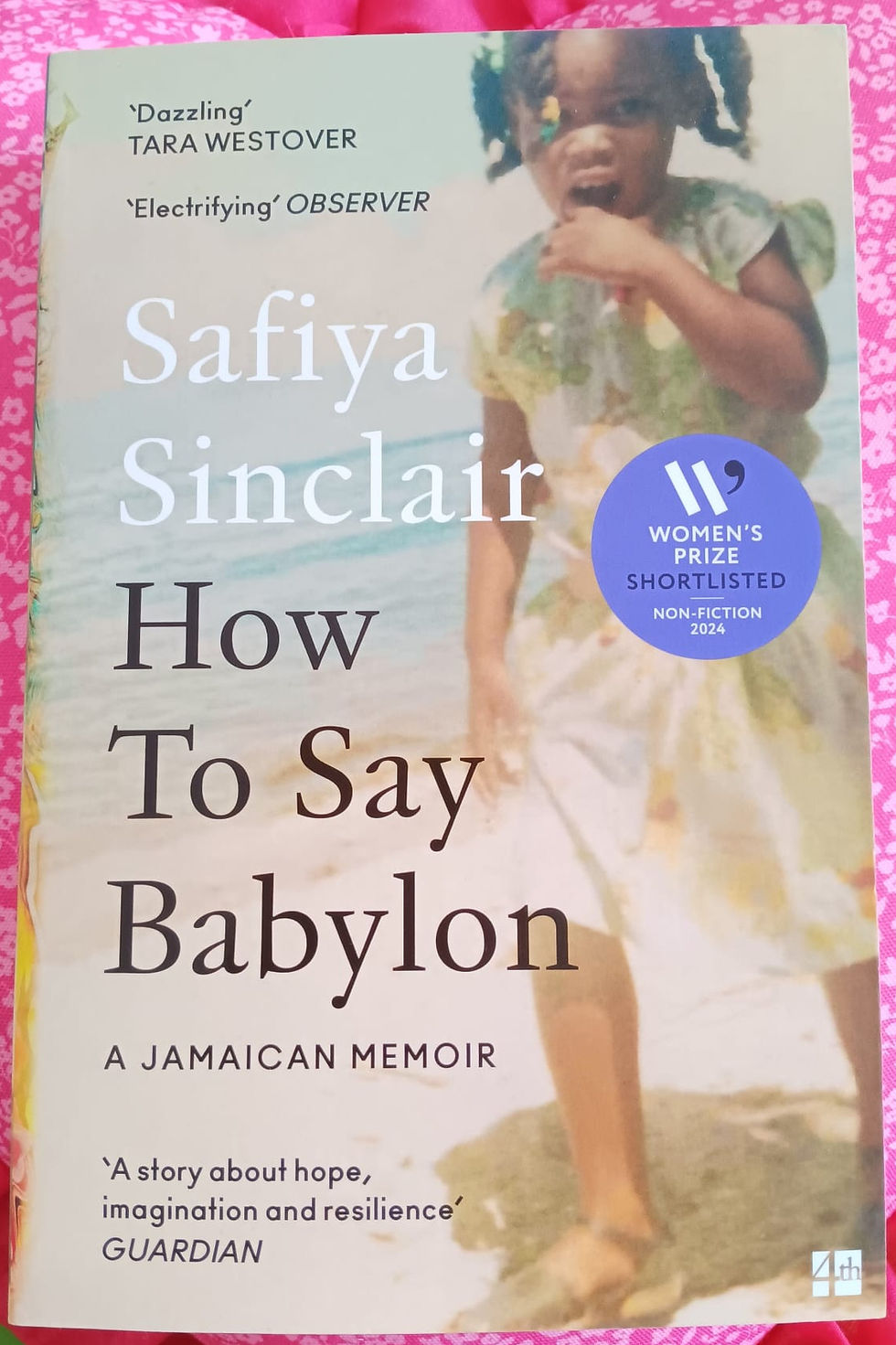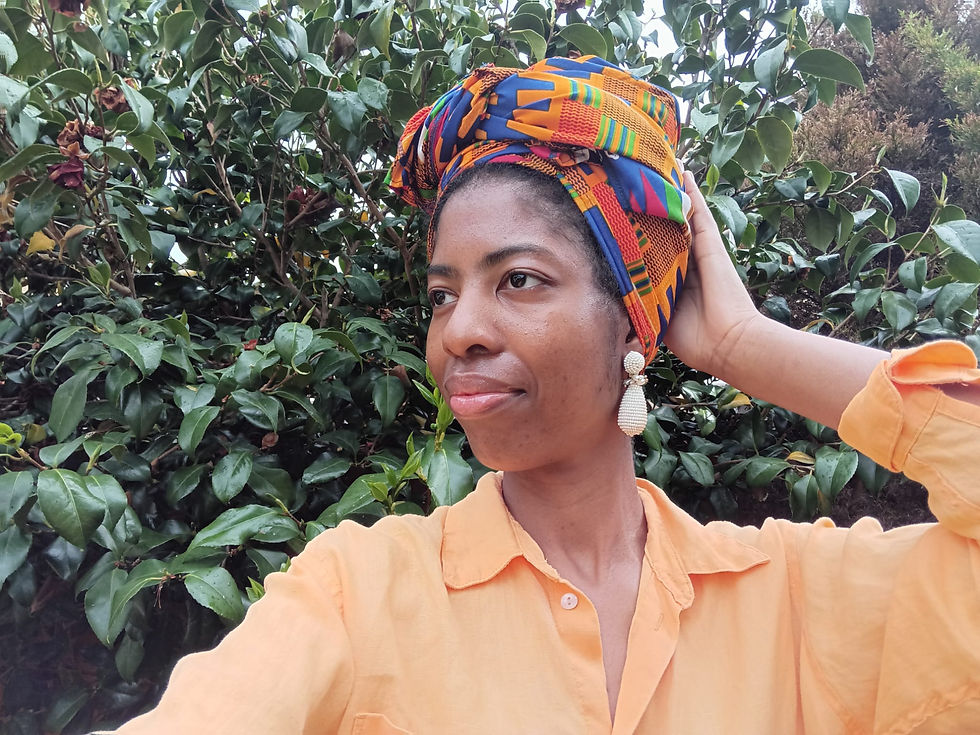BOOK REVIEW: FOR SUCH A TIME AS THIS by Shani Akilah.
- booksandjoyfulness
- Jan 12
- 5 min read
“So, here you are
too foreign for home
too foreign for here.
Never enough for both.”
- Ijeoma Umebinyuo, “Diaspora Blues”, Questions for Ada.

New Year, new book review. This time, I’m reviewing the phenomenal collection of short stories by Shani Akilah entitled ‘For Such a Time as This.’
Shani Akilah borrows the above quote which she uses in the short story ‘Reggie’ (page 105) that is part of her wonderful collection of short stories entitled ‘For Such a Time as This’. This quote perfectly encapsulates the tension many children of the diaspora feel. Many of the characters in this short story collection appear to wrestle with the tension of being “too foreign for home, too foreign for here. Never enough for both” whilst carrying with them familiar cultural traditions of a strong focus on education, ambition, family and friendship.
The pandemic can seem like such a long time away even though we’re still living with COVID. It seems many of us moved on with our lives a long time ago, the terrors of the pandemic a distant memory. This book was a reminder of everything we lost and everything we remembered again. This collection of short stories is also a reminder of everything we can be.
In short, I loved this collection. Lizzie Damilola Blackburn, author of the novel, ‘Yinka, Where is your Huzband’ describes this collection of short stories as “Heartachingly beautiful” and I couldn’t agree more. Each story moved me and moved a different part of my heart. Shani writes with depth, care and deep empathy. Her characters have what the author Chimamanda Ngozi Adichie describes as “emotional truth.” As a reader, I believed her characters (who we realise as the stories progress are mostly part of the same friend group.) I believed they could be real people. I felt the love, growing pains, racism, loss, joy and friendship.
I really felt for these characters, underlining poignant points and putting the book down a few times to reflect and think. This collection made me think about identity; longing; the horrors of COVID, particularly the Black experience during COVID; health issues within the Black community (both physical and mental,) love, family and friendship. Shani Akilah writes about the Black British experience, particularly the Black British experience during and after the height of the pandemic in a way that is viscerally relatable. Like the short story collection ‘Girl, Woman, Other’ by Bernadine Evaristo, there is an interconnectedness with characters. Different characters appear together in stories at multiple times during this book and as a reader, I enjoyed putting ‘two and two together’ and figuring out who is friends with whom and how characters are related.
The collection contains an ‘intro’ story entitled ‘The Commute’ which serves as a perfect introduction into some of the themes of this book and contains a very familiar feeling almost ‘meet cute’ on public transport and is masterfully written in second person, while the ‘outro’ story where the friend group reunites for a typical millennial meet-up feels as if the story has come full circle and there has been some level of personal resolution and deep self-understanding for characters.
I loved all the stories. I loved ‘Ghana in December’ where Shani Akilah writes in detail about men’s mental health and trauma; ‘Good Goodbye’ which deals with the painful end of a relationship and missed opportunities; ‘The Third Death’ where Shani Akilah writes about the pain and heartbreak of forgetting the memories of people we love who are no longer with us and; ‘For Such a Time as This’, which I view as the lead story in this short story collection, which expertly details the horrific racism and microaggressions in the workplace.
‘For Such a Time as This’ is another second person written masterpiece which details the story of a young ambitious Black British millennial’s experience in the workplace around the time of the pandemic. This technique of writing in the second person allows the reader to figuratively step into the role of the main protagonist. Niah speaks up about the Black experience of COVID at her workplace, writes a blog entitled, ‘Black Lives Matter and What It Means for You’ after seeing the video of George Floyd being murdered which goes viral and is asked to begin work for a new senior role which she ultimately does not even get invited to interview for. Prior to applying for the role she is already doing, Niah is gaslight when expressing a need for further clarity regarding particulars of the employment contract. Niah’s line manager can’t provide contract terms, yet “a few days later she asks you to detail what you do in the role. To detail what you do in the role you have created from scratch. It sounds like a job description.” (page 61.) Niah, like a true child of the diaspora with firm values, stands up for herself and ultimately leaves the institution. This story explores themes and issues of structural racism and the Black experience during the pandemic - the tension between engaging in gentility in the workplace whilst being acutely aware of the many challenges faced in our communities particularly during this time. I love that Niah’s name means “a woman of purpose” in Swahili (page 67.) It is a beautiful name for a beautiful character who was certainly made for such a time as this.
As a woman of Guyanese heritage, I must highlight the story ‘The Third Death’ because of the relatability regarding family and a yearning to understand your culture and country of origin. I could tell that Shani Akilah had done her research for this story (as I am sure she would have actioned copious research for all her stories – especially ‘Ghana in December’. Being able to write in such detail about another culture is extremely impressive and commendable).
I could see the research done through her understanding of areas of Guyana, Guyanese family experiences and her detailed descriptions of how to make roti. Everyone who knows me knows I am a serious roti and puri lover. In fact, one of my annotations in this story reads “Not me reading to see what the recipe is!” I loved the listing of some Guyanese food on page 173. I would have liked to see Rianna’s grandmother using more Guyanese Creole but as a child of the diaspora, I realise it can be challenging to master if you didn’t grow up in Guyana. I myself am still learning.
To conclude, I really enjoyed this collection of short stories. It moved me. I thought about characters for days after I finished reading this book. This is a collection of stories that will stay with you for some time, particularly if you have grown up outside of your country of origin. It was a beautiful read and I hope you’ll read this collection of short stories, too.




Comments